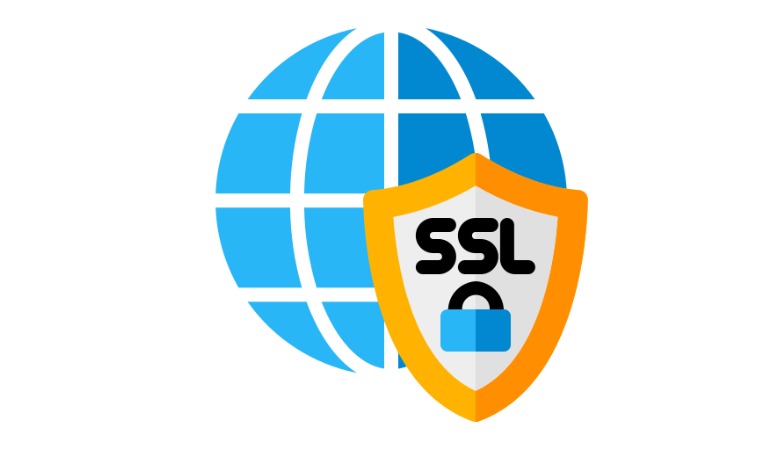
Why We Need SSL Certificate to Secure Your Website
SSL Certificate to Secure Website
Welcome to the world of online security! In this section, we will explore the significance of SSL certificates and why they are essential for protecting your website.
In today’s digital landscape, ensuring the security of your website is paramount, and an SSL certificate plays a crucial role in achieving that.
SSL certificates, or Secure Socket Layer certificates, establish a secure connection between your website and its visitors.
They encrypt data transmitted between web servers and browsers, making it virtually impossible for hackers to intercept and decipher sensitive information.
By implementing an SSL certificate, you create a secure environment for your visitors to interact with your website and protect their valuable data.
But website security is not only about protecting sensitive data.
It’s also about building trust with your visitors.
In an age where online scams and cyber threats are on the rise, visitors want to feel safe when browsing or interacting with a website.
Seeing the reassuring signs of a secure connection, such as the padlock icon and the “https” protocol, can instil confidence and enhance trust in your website.
So why do you need an SSL certificate?
The answer is simple – to safeguard your website and its visitors.
By encrypting data, protecting user privacy, and establishing a secure connection, an SSL certificate ensures that your website’s integrity remains intact.
It also helps you build trust, improve your website’s security, and even boost your SEO performance.
Now that we understand the importance of SSL certificates, let’s dive deeper into how they work and the benefits they provide.
Are you ready? Let's begin!
Table of Contents
Key Takeaways:
- SSL certificates play a crucial role in securing your website and protecting sensitive data.
- By establishing a secure connection, SSL certificates help build trust with visitors.
- The presence of SSL indicators, such as the padlock icon and “https” protocol, instills confidence in users.
- SSL certificates offer benefits like enhanced website security and improved SEO performance.
- Understanding how SSL certificates work is crucial to implementing them effectively.
Understanding SSL Certificates
When it comes to website security, SSL certificates play a crucial role.
They ensure the secure transmission of data between a web server and a browser, protecting sensitive information from unauthorized access.
In this section, we will provide an overview of SSL certificates and how they function to enhance website security.
SSL stands for Secure Socket Layer, a protocol that establishes an encrypted connection between the web server and the user’s browser.
This encryption process ensures that any data exchanged between the two parties remains private and cannot be intercepted by malicious actors.
By encrypting data, SSL certificates protect it from being intercepted or tampered with during transmission.
This is especially important when handling sensitive information such as personal details, credit card numbers, or login credentials.
When a user visits a website with an SSL certificate installed, they can see visual indicators of a secure connection.
This includes the presence of a padlock icon and the “HTTPS” prefix in the website’s URL.
These indicators assure users that their connection is encrypted and that their data is safe from prying eyes.
Now that you have a basic understanding of SSL certificates and their role in website security, let's explore how they protect data privacy in the next section.
| SSL Certificates | Website Security | |||
|---|---|---|---|---|
| Establish secure encrypted connections | Protect sensitive data from interception | |||
| Verify website identity | Build trust with visitors | |||
| Show visual indicators of secure connection | Enhance user confidence in website security | |||
| Encrypt data during transmissionEncrypt data during transmission | Prevent unauthorized access to information |
Protecting Data Privacy
When it comes to running a website, protecting your users’ data privacy is paramount.
There is no one who wants their personal information to fall into the wrong hands.
That’s where SSL certificates come in.
By establishing a secure connection between your website and its visitors, SSL certificates ensure that sensitive data remains encrypted and is transmitted safely.
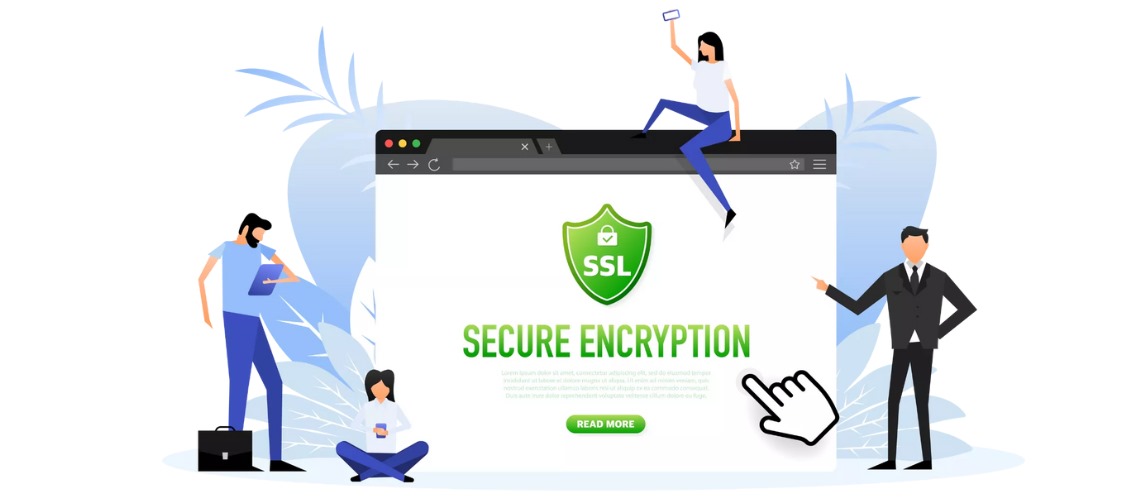
Running a website without an SSL certificate means that any information shared between the user and your site is at risk.
This includes personal details, login credentials, financial data, and more.
Without a secure connection, hackers can intercept and exploit this information, leading to devastating consequences for both you and your users.
With an SSL certificate, data privacy becomes a top priority.
The certificate encrypts the information transferred between the user’s browser and your website, making it nearly impossible for unauthorized individuals to interpret or access the data.
This ensures that sensitive information remains confidential and adds an additional layer of security to your website.
Aside from encryption, SSL certificates also provide visual indicators to users, assuring them that their data is being transmitted securely.
These indicators include the presence of the padlock icon in the address bar and the “https://” protocol.
These cues not only reinforce data privacy but also instill trust in your website and make users feel confident in sharing their information with you.
Benefits of SSL Certificates for Data Privacy:
- Encrypts sensitive data to prevent unauthorized access
- Builds trust with users through visual indicators of a secure connection
- Ensures compliance with data privacy regulations
- Ensures the security of data and prevents cyberattacks
Comparison of SSL Certificates for Data Privacy
| SSL Certificate Type | Encryption Level | Validation Process | Price | |
|---|---|---|---|---|
| Domain Validation (DV) | Medium | Automated | Affordable | |
| Organization Validation (OV) | High | Manual | Moderate | |
| Extended Validation (EV) | Maximum | Rigorous | High |
As shown in the table above, different types of SSL certificates offer varying levels of encryption and validation processes.
While a DV certificate is a cost-effective option for basic data privacy, an EV certificate provides the highest level of assurance and is recommended for websites that handle sensitive user data or engage in e-commerce transactions.
By prioritizing data privacy through the implementation of SSL certificates, you not only protect your users but also demonstrate your commitment to their security.
Make sure to invest in the right SSL certificate type based on your website’s needs and user expectations.
With a secure connection and encrypted data, you can guarantee a safer online experience for your visitors in Bangladesh and beyond.
Building Trust with Visitors
When it comes to your website, building trust with visitors is crucial.
One effective way to establish trust is by implementing SSL certificates.
These certificates play a vital role in safeguarding the security and privacy of user data, ensuring a safe browsing experience for your audience.
SSL indicators, such as the padlock icon and HTTPS protocol, are visible proof that your website is secure.
This visual reassurance instills confidence in users and enhances their perception of your site’s reliability.
When visitors see these indicators, they know that their sensitive information is protected from unauthorized access.
In today’s digital landscape, where cyber threats are prevalent, visitors are cautious about sharing their personal information online.
By implementing SSL certificates, you demonstrate your commitment to protecting their data, thereby fostering trust between your website and its visitors.
Studies have shown that websites with SSL certificates are more likely to gain the trust of users.
Visitors are more inclined to engage with your site, submit personal details, and make online transactions when they feel secure.
Building trust not only enhances user experience but also improves your business’s credibility and conversion rates.
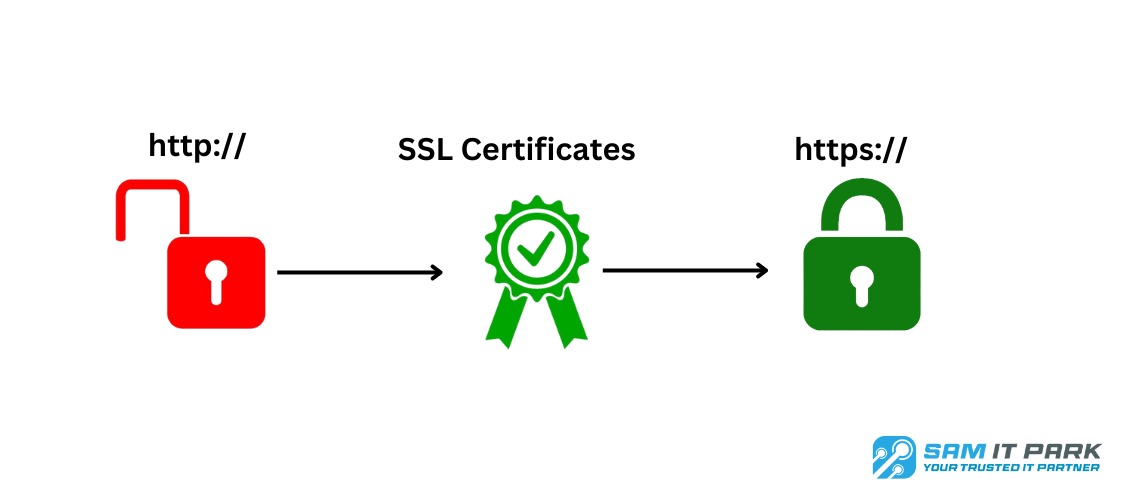
Key benefits of SSL certificates in building trust:
- Ensuring data privacy and security
- Enhancing website credibility and trustworthiness
- Encouraging user engagement and online transactions
- Building a positive reputation for your brand
Overall, by implementing SSL certificates, you establish a secure connection, protect sensitive data, and build trust with your website visitors.
These certificates are a must-have in today’s digital world, enabling you to safeguard user information and create a safe online environment for users to engage with your website.
| Key takeaways: | ||||
|---|---|---|---|---|
| Building trust with website visitors is facilitated by SSL certificates. | ||||
| SSL indicators, such as the padlock icon and HTTPS protocol, enhance users' perception of your site's reliability. | ||||
| SSL certificates encrypt data in transit, ensuring data privacy and security. | ||||
| Websites with SSL certificates are more likely to gain the trust of users and encourage engagement. | ||||
| Implementing SSL certificates establishes a secure connection, protects sensitive data, and builds trust. |
Ensuring Website Security
In the digital age, website security is of utmost importance to protect your business and users from various threats.
One essential aspect of maintaining a secure website is the implementation of SSL encryption through SSL certificates.
These certificates play a vital role in safeguarding your website and providing a safe browsing experience for your visitors.
SSL encryption, also known as Secure Sockets Layer encryption, establishes a secure connection between a web server and a user’s browser.
This encryption ensures that all data transmitted between the two entities remains confidential and protected from unauthorized access.
One of the primary benefits of SSL encryption is its ability to protect against data breaches.
With SSL encryption in place, sensitive information such as personal details, credit card numbers, and login credentials are encrypted and cannot be intercepted or tampered with by malicious third parties.
Another security threat SSL encryption mitigates is phishing attacks.
Phishing is a common cybercrime tactic used to trick users into revealing sensitive information by impersonating legitimate websites.
SSL certificates verify the identity of the website, enabling users to confidently enter their information without the fear of falling victim to phishing schemes.
SSL Certificates and SEO
In today’s digital landscape, having an SSL certificate is not just about securing your website and protecting your visitors’ data.
It also plays a crucial role in improving your website’s ranking in search engine results pages (SERPs) and boosting your overall SEO performance.
Search engines like Google consider website security as one of the ranking factors.
Websites with SSL certificates tend to rank higher than those without it.
By having a secure website, you show search engines that you take data privacy and security seriously, which can positively impact your website’s visibility and organic traffic.
The Importance of SSL Certificates for Your Website
When your website has an SSL certificate, it is served over HTTPS, which stands for Hypertext Transfer Protocol Secure.
This secure protocol not only encrypts the data transmitted between the web server and browser but also provides a layer of trust and credibility to your website.
Search engine crawlers prioritize websites that provide a secure browsing experience to users.
With an SSL certificate, you create a trusted connection with search engines, leading to better visibility and higher rankings.
Furthermore, user experience plays a crucial role in SEO.
When visitors see the padlock icon and HTTPS in their browser’s address bar, they feel confident in browsing your site and sharing their personal information, leading to lower bounce rates and longer visit durations.
These user engagement signals indirectly contribute to improved search engine rankings.
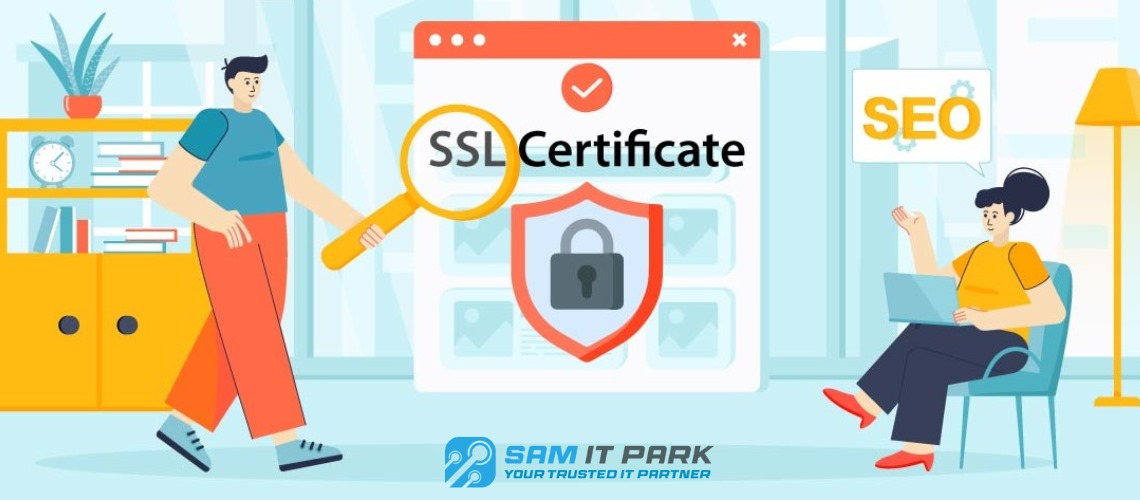
SEO benefits of SSL certificates:
- Improved website visibility and organic search rankings
- Enhanced trust and credibility with search engines
- Better user experience and engagement
- Reduced bounce rates and longer visit durations
If you want to improve your website’s search engine rankings and overall SEO performance, investing in an SSL certificate is a crucial step.
Not only will it secure your website and protect your visitors’ data, but it will also give you a competitive edge in the Bangladesh market and beyond.
| SEO Benefits | SSL Certificates | |||
|---|---|---|---|---|
| Improved search engine rankings | ✓ | |||
| Enhanced trust and credibility | ✓ | |||
| Better user experience | ✓ | |||
| Reduced bounce rates | ✓ |
SSL Certificates and Website Performance
When it comes to website performance, there are often concerns that implementing SSL certificates can slow down your site.
However, this is a common misconception that can be easily addressed with proper SSL implementation strategies.
SSL certificates play a crucial role in ensuring the security of your website, protecting sensitive data and establishing trust with your visitors.
But what about performance?
The truth is, SSL implementation does introduce some additional overhead due to the encryption and decryption processes.
However, this impact on website performance is typically minimal and can be effectively managed with optimization techniques.
To optimize SSL implementation and minimize any potential performance impact, consider the following strategies:
1. Choose the Right SSL Certificate
Not all SSL certificates are created equal in terms of performance.
Different types of SSL certificates offer varying levels of security and have different resource requirements.
When selecting an SSL certificate, consider your specific website needs and opt for a certificate that aligns with your performance goals.
2. Enable HTTP/2
HTTP/2 is the latest version of the Hypertext Transfer Protocol and offers significant performance improvements over its predecessor, HTTP/1.1.
By enabling HTTP/2, you can take advantage of its multiplexing capabilities, which allow for concurrent data transfers, resulting in faster and more efficient page loading times.
3. Implement Content Delivery Network (CDN)
A Content Delivery Network (CDN) helps improve website performance by serving your website’s content from servers located closer to your visitors.
This reduces latency and improves response times, resulting in faster page loading speeds even with SSL encryption in place.
4. Leverage Caching
Implementing caching mechanisms can significantly improve website performance by storing static content and serving it to visitors from the cache.
This reduces the need for resource-intensive SSL negotiation and speeds up page rendering.
5. Optimize SSL/TLS Configuration
Configuring your SSL/TLS settings properly can help optimize website performance.
Adjusting protocols, cipher suites, and other settings can strike a balance between security and performance, ensuring a smooth and secure browsing experience for your visitors.
By employing these strategies, you can ensure that SSL certificates positively contribute to your website’s security without compromising its performance.
Remember, SSL implementation is essential for building trust with your visitors and improving your website’s SEO ranking.
So don’t let performance concerns hold you back from securing your website with SSL.
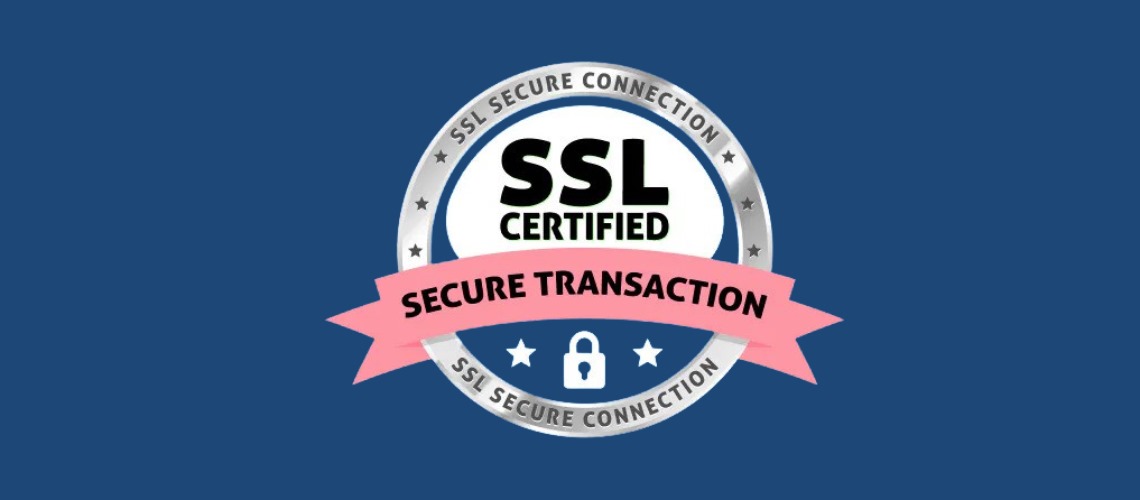
Different Types of SSL Certificates
When it comes to securing your website, choosing the right type of SSL certificate is essential.
SSL certificates offer varying levels of security based on the validation process and scope of protection they provide.
In this section, we will explore the different types of SSL certificates available and their respective website security levels.
1. Domain Validation (DV) Certificates:
A Domain Validation (DV) certificate is the most basic type of SSL certificate.
It verifies ownership of the domain and encrypts data transmitted between the web server and browser.
DV certificates are easy to obtain and suitable for personal websites, blogs, or small business websites that do not require extensive validation.
2. Organization Validation (OV) Certificates:
For businesses looking to enhance their credibility and gain customer trust, Organization Validation (OV) certificates are an ideal choice.
OV certificates undergo a more rigorous validation process, verifying the organization’s identity as well as the domain ownership.
These certificates display the organization’s details in the certificate, providing users with additional information for verification.
3. Extended Validation (EV) Certificates:
The highest level of SSL security is provided by Extended Validation (EV) certificates.
EV certificates undergo a thorough validation process, including both domain and organization verification.
Websites with EV certificates display a green address bar in browsers, indicating the highest level of security and instilling confidence in visitors.
EV certificates are ideal for e-commerce websites, financial institutions, or any website that handles sensitive customer information.
| SSL Certificate Type | Validation Level | Benefits | ||
|---|---|---|---|---|
| Domain Validation (DV) Certificates | Basic | Easy to obtain, suitable for personal websites and small businesses | ||
| Organization Validation (OV) Certificates | Intermediate | Enhances credibility and customer trust, displays organization details | ||
| Extended Validation (EV) Certificates | High | Highest level of security, displays green address bar, ideal for e-commerce and financial websites |
Obtaining and Installing an SSL Certificate
Securing your website with an SSL certificate is a crucial step in protecting your visitors’ data and establishing trust.
In this section, we will walk you through the process of obtaining and installing an SSL certificate for your website, ensuring a safe and secure browsing experience for your users.
1. Choose a reputable Certificate Authority (CA)
The first step in obtaining an SSL certificate is selecting a reliable Certificate Authority.
A CA is an organization that issues digital certificates to websites after verifying their identity.
Look for well-known CAs that offer a wide range of SSL certificates to suit your needs.
2. Determine the type of SSL certificate you need
Your website’s security and validation requirements should be considered.
There are different types of SSL certificates, such as domain validation (DV), organization validation (OV), and extended validation (EV), each offering varying levels of assurance and trust.
Choose according to your specific requirements.
3. Provide the necessary documentation
When applying for an SSL certificate, you will need to provide certain documentation to prove your identity and ownership of the domain.
The CA will guide you through the verification process, which may include submitting legal documents or confirming contact details.
Make sure you have all the required documentation ready.
4. Generate a Certificate Signing Request (CSR)
A Certificate Signing Request (CSR) is a cryptographic file that contains your website’s information and is required to obtain an SSL certificate.
You will need to generate a CSR from your server or hosting provider and provide it to the CA during the application process.
5. Complete the validation process
After submitting your application and CSR, the CA will initiate the validation process.
The time required for validation may vary depending on the type of certificate and the CA’s procedures.
During this process, the CA will verify your domain ownership and authenticate your identity to ensure the security of your website.
6. Install the SSL certificate
Once your SSL certificate is issued, it’s time to install it on your server.
The installation process may vary depending on your server software or hosting provider.
Generally, it involves uploading the certificate files and updating your server configuration to enable HTTPS for your website.
Follow the instructions provided by your server administrator or hosting support to complete the installation successfully.
By following these steps, you can obtain and install an SSL certificate to secure your website and protect your visitors’ sensitive information.
Remember, an SSL certificate is a crucial aspect of website security and trust, demonstrating your commitment to protecting user data and ensuring a safe online experience.
Common SSL Certificate Challenges
Implementing SSL certificates for your website can sometimes present challenges along the way.
However, knowing how to troubleshoot these issues can make the process smoother and ensure that your website remains secure.
In this section, we will address common challenges that website owners may face when implementing SSL certificates.
Mixed Content Warnings
One common challenge is receiving mixed content warnings.
This occurs when a webpage contains both secure (HTTPS) and insecure (HTTP) elements.
It can happen when images, scripts, or stylesheets are not loaded securely.
To resolve this issue, you need to ensure that all elements on your webpage are loaded securely by using HTTPS URLs for all resources.
Certificate Errors
Another challenge that you may encounter is certificate errors.
These errors can occur when there are issues with the SSL certificate itself or when it is not correctly installed.
To troubleshoot certificate errors, you can try reissuing the certificate, double-checking the installation process, and ensuring that the certificate is valid and up to date.
Certificate Renewal
SSL certificates typically have an expiration date, and it’s important to renew them before they expire.
However, certificate renewal can sometimes be a challenge if not done correctly.
To avoid any issues, make sure to set reminders for certificate renewal well in advance.
Additionally, check with your certificate authority for the specific renewal process and any required documentation.
By being aware of these common challenges and their troubleshooting solutions, you can overcome any hurdles that may arise when implementing SSL certificates for your website.
Ensuring a smooth installation process will help secure your website and provide a safe browsing experience for your visitors.
SSL Certificates and E-commerce
In today’s digital landscape, e-commerce has become an integral part of our lives.
With more and more people making online purchases, it’s crucial to ensure the security of these transactions.
That’s where SSL certificates come in.
An SSL certificate provides the necessary encryption to safeguard sensitive information during e-commerce transactions.
Whether it’s a customer’s personal details, credit card information, or login credentials, SSL security ensures that this data remains protected from unauthorized access.
By implementing an SSL certificate on your e-commerce website, you create a secure environment that instills confidence in your customers.
This trust is vital for the success of any online business, as customers are more likely to make purchases and share their information when they feel safe.

Furthermore, SSL encryption ensures that the information exchanged between your customers and your website remains confidential.
This means that even if someone tries to intercept the data being transmitted, they won’t be able to decipher or misuse it.
So, whether you’re selling products or services online, having an SSL certificate is vital.
It not only protects your customers but also enhances your reputation as a trustworthy and secure e-commerce platform.
E-commerce and SSL Security: Protecting Your Business and Customers
Implementing SSL security on your e-commerce website offers a myriad of benefits:
- Secures customer data: SSL encryption protects sensitive data, such as credit card numbers and personal information.
- Builds trust: By displaying trust indicators like the padlock icon and HTTPS protocol, you establish credibility and reassure customers that their information is protected.
- Boosts conversion rates: When customers feel safe on your website, they are more likely to complete transactions, leading to increased conversion rates and revenue.
- Enhances SEO: Search engines, like Google, prioritize secure websites in search results, boosting your visibility and attracting more potential customers.
Investing in an SSL certificate for your e-commerce website is a wise decision that pays off in the long run.
It not only protects your customers but also contributes to the success and growth of your online business.
| Benefits of SSL Certificates for E-commerce Websites | Explanation | |||
|---|---|---|---|---|
| Data Protection | SSL encryption ensures that customer data remains confidential and secure during online transactions. | |||
| Trust and Credibility | SSL certificates display trust indicators, such as the padlock icon, instilling confidence in customers and building credibility for your e-commerce platform. | |||
| Increase in Conversion Rates | When customers feel secure on your website, they are more likely to complete transactions, leading to higher conversion rates. | |||
| Improved SEO Performance | Search engines prioritize secure websites, leading to enhanced visibility and better search engine rankings for your e-commerce platform. |
Conclusion
In conclusion, this article has highlighted the significance of having an SSL certificate for securing your website and building trust with visitors.
By implementing an SSL certificate, you ensure data privacy, enhance website security, boost SEO performance, and provide a secure platform for e-commerce transactions.
Don’t underestimate the importance of SSL certificates in today’s digital landscape.
With cyber threats on the rise, it is crucial to prioritize website security to protect sensitive information and maintain the integrity of your online presence.
By investing in an SSL certificate, you not only safeguard your website but also gain a competitive edge in Bangladesh and beyond.
Visitors will feel confident knowing that their data is encrypted and their privacy is protected, reinforcing trust in your brand and establishing a positive user experience.
Embrace the power of SSL certificates to fortify your website’s security and ensure a safe and secure browsing environment for your visitors.
Frequently Asked Questions
Why is an SSL certificate important for website security?
An SSL certificate is important for website security because it encrypts the data transmitted between a web server and a browser, preventing unauthorized access. It ensures that sensitive information, such as passwords and credit card details, remains confidential and protected from hackers.
How does an SSL certificate work?
An SSL certificate works by establishing a secure connection between a website server and a visitor’s browser. It uses encryption algorithms to encode the data being transmitted, making it unreadable to anyone who intercepts it. It ensures the privacy and security of sensitive information.
What is the impact of having an SSL certificate on website trust?
Having an SSL certificate instills trust in website visitors because it provides visual indicators of security, such as the padlock icon and HTTPS protocol. These indicators assure users that their connection to the website is secure and their data is protected, fostering confidence and trust in the site.
How does an SSL certificate affect website performance?
Contrary to common misconceptions, an SSL certificate does not significantly impact website performance. With proper implementation and optimization, the impact on website speed and performance can be minimized. In fact, SSL certificates can even improve website performance by boosting SEO rankings and enhancing user experience.
Are there different types of SSL certificates?
Yes, there are different types of SSL certificates available, including domain validation (DV), organization validation (OV), and extended validation (EV) certificates. These certificates vary in terms of the level of validation and the information included in the certificate, providing different levels of security for websites.
How can I obtain and install an SSL certificate for my website?
To obtain and install an SSL certificate, you need to go through a reputable certificate authority (CA) that issues SSL certificates. You will need to provide them with necessary documentation and undergo a validation process. Once the certificate is issued, you can install it on your website’s server to enable SSL encryption.
What are some common challenges with SSL certificates?
Common challenges with SSL certificates include certificate errors, mixed content warnings, and certificate renewal. These issues can arise due to misconfiguration, outdated certificates, or incorrect implementation. Troubleshooting tips and solutions are available to address and resolve these challenges.
How does an SSL certificate benefit e-commerce websites?
SSL certificates are crucial for e-commerce websites as they ensure the security of online transactions, protect customer data from unauthorized access, and create a safe environment for online shopping. SSL encryption provides customers with confidence in the website’s legitimacy and helps prevent fraud and data breaches.


